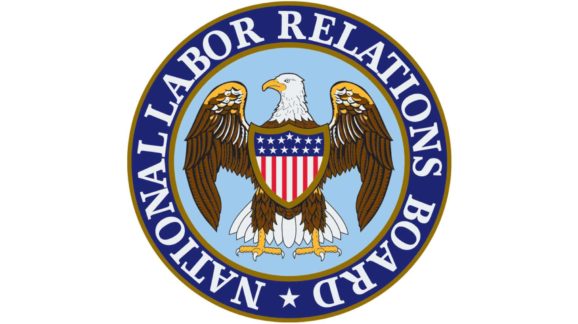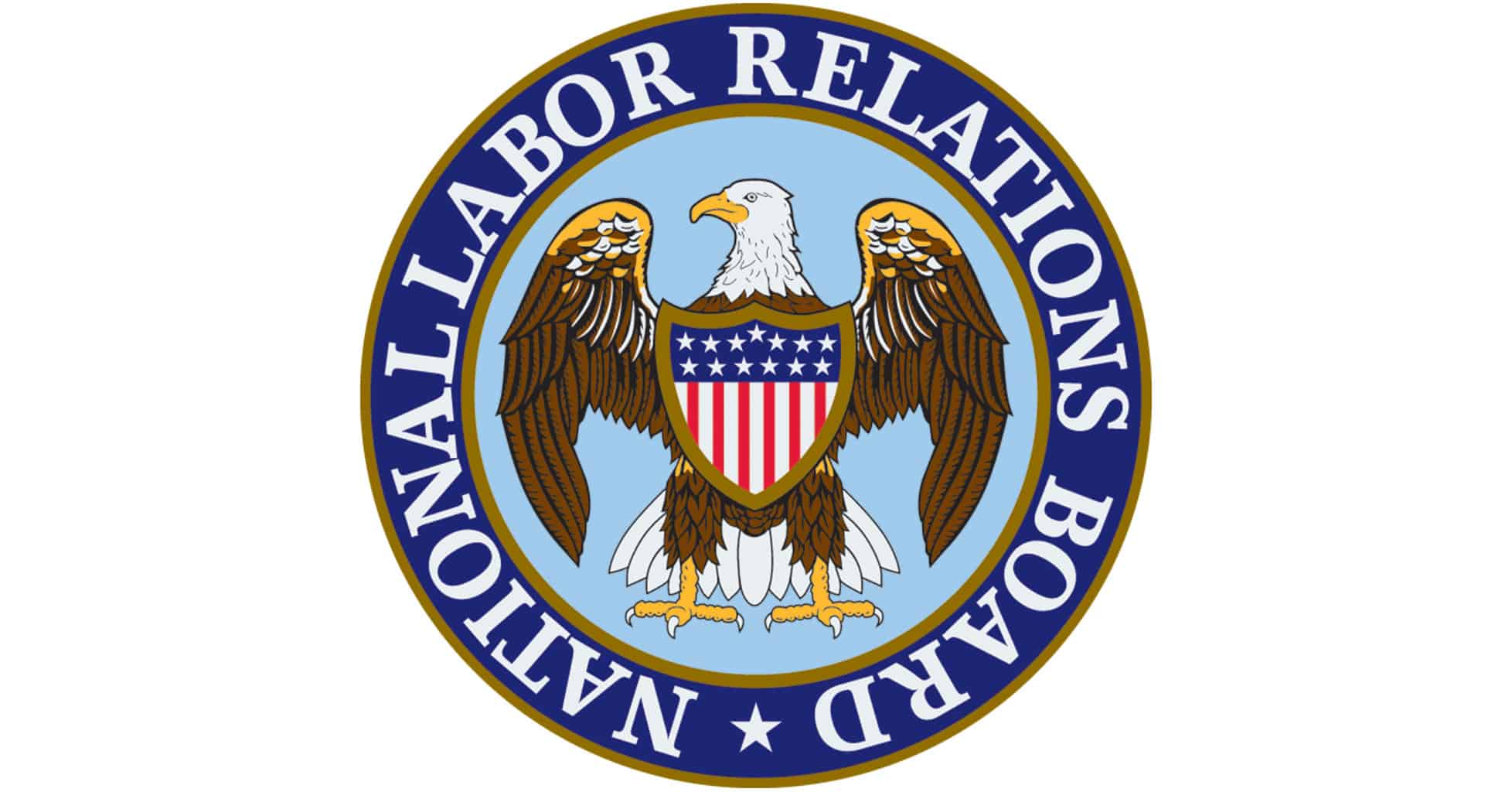Top 5 Changes in Labor Policy to Look for in 2018

 Major labor reform is on the horizon in 2018. Worker freedom may be coming to a state near you, federal overtime requirements will likely change, and the National Labor Relations Board (NLRB) has signaled it will restore longstanding precedent and act as a neutral arbiter instead of a union advocate.
Major labor reform is on the horizon in 2018. Worker freedom may be coming to a state near you, federal overtime requirements will likely change, and the National Labor Relations Board (NLRB) has signaled it will restore longstanding precedent and act as a neutral arbiter instead of a union advocate.
- Worker Freedom
A landmark case currently before the U.S. Supreme Court could free millions of public-sector workers from forced union dues. In Janus v AFSCME, Council 31, the court will decide whether the First Amendment allows the government to force public employees to financially assist a union they do not support. In about 20 states, non-union member state and local public employees are forced to pay so-called agency fees to a union as a condition of employment.
The plaintiff, Mark Janus, a child care specialist in Illinois, argues that collective bargaining in the public sector is inherently political. As such, forcing public employees to fund labor union collective bargaining negotiations violates the First Amendment. Forced union dues compel workers like Mr. Janus to pay a union to advocate on political subjects such as taxpayer-funded wages, pensions, and work conditions. Further, as the Competitive Enterprise Institute’s amicus brief shows, agency fees also fund overt political activity.
There are strong signals that the Supreme Court will rule in favor of Janus. In recent decisions, Justice Samuel Alito has called precedent permitting forced union dues “something of an anomaly.” And that “agency fee provisions unquestionably impose a heavy burden on the First Amendment interests of objecting employees.”
At the time of this writing, oral arguments in Janus have not been set, but many anticipate they will take place at the end of February, with a decision coming in the summer.
- Overtime Requirements
It was an eventful past couple of years for federal overtime standards. In 2016, the Department of Labor (DOL) issued a final rule that would have doubled the salary threshold necessary to be exempt from overtime pay requirements from $23,660 to $47,476. The Obama era rule would have imposed enormous costs on employers with employees receiving minimal benefit. Research found a majority of newly overtime eligible employees did not work over 40 hours a week, meaning they would not receive any additional pay. Fortunately, in 2017, the Eastern Texas District Court struck down the rule. The Court ruled that Congress did not intend for an employee’s salary to be the predominant factor when determining overtime eligibility. Rather, the Fair Labor Standards Act’s plain text states that employees are exempt from overtime pay when they perform “Executive, Administrative, and Professional” duties. By raising the salary threshold so high the DOL’s final rule disregarded congressional intent.
The Trump DOL has now decided to start from scratch and issue a new overtime rule. It started the rulemaking process in July of 2017 when it issued a Request for Information on how to craft a sensible overtime regulation. In 2018, the DOL is expected to release a notice of proposed rulemaking. Currently, little information is available on what provisions will be included.
- Ambush Election Rule
As part of the pro-union agenda of the Obama-era National Labor Relations Board, the agency issued a final rule that overhauled how union elections are conducted. The 2015 rule change shortened the time frame between the filing of a petition and the date on which an election is conducted, reducing it to as little as 14 days. The short time frame gives employees little opportunity to educate themselves on the pros and cons of unionizing, and undermines employers’ ability to respond to unionization campaigns. Naturally, in this short time span, unions tout the potential benefits of unionization, not any of the downsides. With little time to respond before a representation election takes place, employers have a much harder time getting their message out.
The ambush election rule also poses a serious threat to worker privacy. It compels employers to provide employees’ contact information to union organizers, including personal cell phone numbers, email addresses, and work schedules, without any opportunity for workers who do not want their personal data released to opt out. Releasing employee personal information would almost certainly expose workers to harassment, intimidation, and much higher risk of identity theft. In fact, the NLRB general counsel’s guidance memo on the ambush election rule acknowledges the adverse impacts that could arise from distributing workers’ private information: “selling the list to telemarketers, (2) providing it to a political campaign, or (3) using the list to harass, coerce, or rob employees.”
With a new Republican majority at the NLRB, the Board has decided to rethink the logic behind the ambush election rule. On December 12, 2017, the NLRB announced it will issue a Request for Information on whether the rule should be rescinded or what specific provisions should be repealed. The comment period ends in February 2018.
- NLRB Memo Signals Change
The Obama NLRB tilted labor-management relations far in favor of unions. A report found that the agency overturned around 4,000 years of precedent. Nearly every change benefitted labor unions at the expense of workers and employers.
Newly confirmed NLRB General Counsel Peter Robb is aware of how far Board precedent swung in favor of unions. In a recently issued memorandum, General Counsel Robb signaled there may be a course correction regarding some of the more controversial decisions made by the Obama NLRB. The memo orders NLRB regional offices to submit cases dealing with “significant legal issues,” or cases that overturned precedent in the past eight years, to the General Counsel for advice.
The memo singles out areas where the NLRB General Counsel Office may seek to provide the Board with “alternative analysis.” Some decisions the General Counsel may weigh in on include decisions involving employee handbooks, use of employer’s email system for union organizing, off-duty employee access to employer property, and others.
Over the past week, the NLRB has already restored several longstanding precedents involving the proper scope of collective bargaining units, joint employer liability and employer rules that require civility in the workplace. This is a positive development, and a sign that the NLRB will bring balance back to labor-management relations and restore longstanding policy.
- Joint Employer Relationships
The NLRB is well on its way to restoring longstanding, commonsense Board precedent. As I recently wrote, the NLRB recently returned to the traditional joint employer standard:
On December 14, the NLRB overruled the Board’s 2015 decision in Browning-Ferris, and brought back the traditional standard for determining joint employer liability. The pre-Browning-Ferris standard requires one company to exercise direct and immediate control, and to do so in more than a limited and routine manner, over essential terms and conditions of another employer’s workforce, in order to establish a joint employer relationship.
The Browning-Ferris standard broadly expanded joint employer liability, under which a joint employer relationship could be established when one employer exercised indirect control in a limited or routine manner or possessed unexercised potential control over workplace conditions.
This is a great development, but precedent is fleeting at the NLRB. Since the executive branch selects the majority at the NLRB, the next president can easily flip joint employer policy back to the Browning-Ferris standard.
In 2018, expect a hard push by Congress to cement the traditional joint employer standard into law.